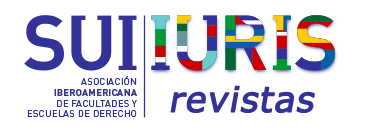Social Media Platforms: An Approach for the Inter-American System Legislation
Keywords:
social media platforms, human rights, accountability, model law, InterAmerican SystemAbstract
In recent years, social media platforms have been in the eye of the storm. The Cambridge Analytica case, the disinformation campaigns against Hillary Clinton in 2016, Trump's censorship on Twitter or the allegation made in 2021 by the whistleblower Francis Haugen are examples of this.
Nowadays, there is a global debate about whether social media networks should be regulated or not, how that regulation should look like and what consequences could imply. For instance, the European Union has already established two programs: the Digital Services Act (DSA) and the Digital Market Act (DMA) that create a legal framework for this environment. In the US, there is an open debate on which should be the role of the government.
The main concerns that have been raised in favor of its regulation are about their content and privacy policies, as well as the use of personal data provided by users. According to this research, the lack of regulation of social networking platforms poses a concrete risk to people's basic rights and guarantees. Consequently, this regulation would be urgent in so far as it would allow to determine limits, obligations and the legal liability of the companies that own these social media platforms. At the same time, it would make it possible to regulate and adapt its operation in accordance with the users' guarantees.
When drafting this model legislation, the initial challenge was to be able to create consensus regarding the definitions of the object to be regulated - or the object of study -, and its related concepts. One of the contributions of this manuscript is the clear conceptualization of each term, which allow us to have a common ground to start a debate on how social media platforms can be regulated. This research challenges the conceptualization of social media platforms and approach to determining responsibility in the four questions and rights mentioned above.
As social media is an international resource, it is thus necessary that the legislation is not only framed in one country. Therefore, this study is framed within the Inter-American system, understanding that the common legal ground of the countries involved is the American Convention on Human Rights.
First, this research provides a uniform and comprehensive definition of the key concepts for eventual legislation. Second, it answers three main questions: who will be responsible for enforcing the legislation and surveilling its compliance? How will compliance be assured? And what are the dangers and threats of having stringent legislation? Finally, it proposes a uniform standard legislation that any country within the Inter-American system could consider when legislating social media platforms in their own territory.
Downloads
References
Access Now. “26 recommendations on content governance: a guide for lawmakers, regulators, and company policy makers”. 2020. Disponible en: https://www.accessnow.org/cms/assets/uploads/2020/03/Recommendations-On-Content-Governance-digital.pdf.
Balkin, Jack M. “How to Regulate (and Not Regulate) Social Media”. Knight Institute Occasional Paper Series 1 (marzo de 2020). Disponible en: https://ssrn.com/abstract=3484114 o http://dx.doi.org/10.2139/ssrn.3484114.
Barberá, Pablo. “Social Media, Echo Chambers, and Political Polarization, in Social Media and Democracy: The State of the Field”. Prospects for Reform. Cambridge University Press (2020): pp. 34-55. Disponible en: http://pablobarbera.com/static/echo-chambers.pdf.
Boyd, Danah M., y Ellison Nicole B. “Social Network Sites: Definition, History, and Scholarship”. Journal of Computer-Mediated Communication 13 (1) (2007): pp. 210-230. Disponible en: https://doi.org/10.1111/j.1083-6101.2007.00393.x.
Dirección Nacional de Registro de Dominio de Internet Argentina. “¿Qué es un algoritmo?” NIC Argentina, 2018. Disponible en: https://nic.ar/es/enterate/novedades/que-es-algoritmo.
Ginsburg, Tom y Stephanopoulos, N. “The concepts of law”. University of Chicago Law Review 84 (2017): pp. 147-175.
Goldhaber, Michael H., “The attention economy and the net”. First Monday 2 (4) (abril, 1997). Disponible en: https://journals.uic.edu/ojs/index.php/fm/article/download/519/440#notex.
Harden, Angela y Thomas, James. “Methodological Issues in Combining Diverse Study Types in Systematic Review”. International Journal of Social Research Methodology 8 (3) (2005): pp. 257-271. DOI: 10.1080/13645570500155078.
Leerssen, Paddy. “The Soap Box as a Black Box: Regulating Transparency in Social Media Recommender Systems”. European Journal of Law and Technology 11 (2) (2020). Disponible en: https://www.ejlt.org/index.php/ejlt/article/view/786.
Lemos, Margaret. “State Enforcement of Federal Law”. 86 New York University Law Review (2011): pp. 698-765. Disponible en: https://scholarship.law.duke.edu/faculty_scholarship/2516/.
Li, Fangfang; Larimo, Jorma y Leonidou, Leonidas C. “Social media marketing strategy: definition, conceptualization, taxonomy, validation, and future agenda”. Journal of the Academy of Marketing Science 49, (2021): pp. 51-70. Disponible en: https://doi.org/10.1007/s11747-020-00733-3.
López-Lapuente, Leticia y Gimeno, Lidia. “La normativa reguladora de las redes sociales: Más allá de la protección de datos”. Confilegal (2020). Disponible en: https://confilegal.com/20200129-la-normativa-reguladora-de-las-redes-sociales-mas-alla-de-la-proteccion-de-datos/.
Lopez Yse, Diego, “Algorithms of Social Manipulation”, The Startup, 2020. Disponible en: https://medium.com/swlh/algorithms-of-social-manipulation-1915b5cd339a.
Obar, Jonathan A. y Wildman. Steven S. “Social media definition and the governance challenge: An introduction to the special issue. 2015. Telecommunications policy” (2017): pp. 745-750. Disponible en: https://papers.ssrn.com/sol3/papers.cfm?abstract_id=2663153.
Organización de Naciones Unidas. “Criteria for the appointment of experts”. Disponible en: https://www.un.org/depts/los/global_reporting/Criteria_for_Appointment.pdf.
Organization of American States (OAS). American Convention on Human Rights, "Pact of San Jose”, Costa Rica. Noviembre, 1969. Disponible en: https://www.refworld.org/docid/3ae6b36510.html.
Parlatino Model Laws, “Procedimiento para la elaboración, discusión y aprobación de proyectos de leyes modelo”. 2017. Disponible en: https://parlatino.org/wp-content/uploads/2017/09/procedimiento-aprobacion-leyes.pdf.
Shearer, Elisa, “More than eight-in-ten Americans get news from digital devices”. Pew Research Center, 12 de enero de 2021. Disponible en: https://www.pewresearch.org/fact-tank/2021/01/12/more-than-eight-in-ten-americans-get-news-from-digital-devices/.
True People Search Insights. “What information are giant tech companies collecting from you?” True Pelople Search Insights, 2020. Disponible en: https://www.truepeoplesearch.com/insights/info-tech-companies-collecting-from-you.
Wall Street Journal. “Facebook Files project”. 2021. Disponible en: https://www.wsj.com/news/types/the-facebook-files.
Weiss, Marie-Andrée. “Regulating Freedom of Speech on social media: Comparing the EU and the US Approach”. TTLF Working Papers 73, Stanford-Vienna Transatlantic Technology Law Forum (2021). Disponible en: https://law.stanford.edu/projects/regulating-freedom-of-speech-on-social-media-comparing-the-eu-and-the-u-s-approach/.
Woolley Samuel C., y Howard, Philip N., Computational propaganda: Political parties, politicians, and political manipulation on social media. Nueva York: Oxford Press University, 2018. Disponible en: https://oxford.universitypressscholarship.com/view/10.1093/oso/9780190931407.001.0001/oso-9780190931407.
YouTube, “Hate Speech Policy”, YouTube Policies. Última modificación: 5 de enero, 2022.
Published
How to Cite
License
Copyright (c) 2023 Universidad de San Andres Law Review

This work is licensed under a Creative Commons Attribution 4.0 International License.










